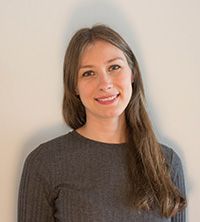Career prospects and further studies
A master’s degree in linguistics forms the basis for further doctoral studies and research work in the university and college sectors, not only in linguistics, but in language sciences in general. Linguists also work with language standardization, on dictionary projects, in language training for foreigners, and not least in language and information technology.
Former students at work
-
Adviser at the Norwegian Language Bank
The language technology industry will continue to grow steadily. A job market has opened up for linguists who are native speakers of the language for which language technology is being developed, says Marie.
-
Natural language understanding specialist, historical language consultant and transcriber
“My studies in linguistics have shown me the breadth of language as a discipline – a perspective that is absolutely essential in all my jobs” says André who works with both cars and TV-series.
Where to find a job?
The 2023 UiO Graduate Survey has mapped where former students work and what type of jobs they have. This shows the results for graduates with a Master’s Degree from the Department of Linguistics and Scandinavian Studies :
Main areas of work
- Higher education/Research/Development
- Education and Schooling
- Media/Communication/Publishing/PR
- Cultural sector
- Privat sector/Business/Consulting services
- Public administration
Key work tasks
- Teaching/Pedagogical work
- Communication/Information
- Administration/Case management
- Research
- Project management/Project work
- Journalism/Editorial work/Media production
The results from the 2023 Graduate Survey also show that
- four out of five graduates are satisfied with the educational programme they studied
- nine out of ten graduates are employed or taking a PhD after completing their master’s degree
- completed education is perceived as relevant already in the first job
- work tasks have a clearer professional profile compared to graduates with a bachelor’s degree
- graduates score highly in academic skills; specialist expertise, theory, methodology, ethical reflection and critical thinking
- contact with working life during studies is perceived as useful or very useful
Start developing your career
In your third semester at the master's programme in linguistics you can choose to have an internship at a workplace relevant to your field of study. You can also write a master's thesis in collaboration with an external funder/employer. In this way, you can get a valuable network which can be useful when you are looking for a job later.
You can also prepare for working life during your studies by attending career events, job search and interview courses, counseling and other activities offered to HF students.
Enhance your degree with an interdisciplinary certificate
Gain unique interdisciplinary competencies for your degree, together with students from across UiO. The certificate provides students with knowledge and skills sought after in the job market.
The honours certificates consists of 20 ECTS, which may be taken as a supplement to your program. It is available for all students enrolled in a master's or professional degree program.
Further studies
If you want to become a teacher, please apply to:
Read more about reserarch training at the Faculty of Humanities:

